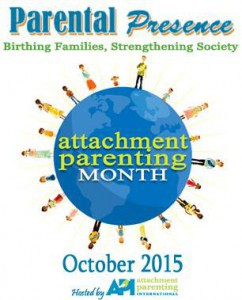 Because of the overwhelming research, and our advocacy for infants and toddlers, Attachment Parenting International (API) is in full support of strong parental leave policies for all nations, similar to those in many countries around the world. Sweden’s policy is probably one of the most generous, with 480 days of paid parental leave.
Because of the overwhelming research, and our advocacy for infants and toddlers, Attachment Parenting International (API) is in full support of strong parental leave policies for all nations, similar to those in many countries around the world. Sweden’s policy is probably one of the most generous, with 480 days of paid parental leave.
About the Authors
Barbara Nicholson, MEd, API Leader, and Lysa Parker, MS, CFLE, CEIM, API Leader, are the cofounders of API and coauthors of the award-winning book, Attached at the Heart. They continue to serve on API’s Board of Directors.
Lysa is the mother of 3 grown children, has 4 grandchildren and lives with her husband near Huntsville, Alabama, USA. She served as API’s executive director for 13 years and continues to work closely with API’s “Attached at the Heart” Parent Education curriculum. She has dedicated her life to improving the way children are treated.
Barbara has 4 grown sons and lives with her husband in Nashville, Tennessee, USA. She continues to work closely with API on fundraising. She views parenting as a prevention model for societal violence.
“We have decades of research that tells us how important it is that a bond is established between parents and young children beginning at birth,” says Dr. Jack P. Shonkoff, director of the Center on the Developing Child at Harvard University. “The need for time to form secure attachments is critically important. It’s one of the most important things you can do to build a foundation for a lifetime of healthy development.”
This quote was in reaction to the announcement that Netflix is offering up to 1 year of paid parental leave for its employees who give birth or adopt. Of course, we rejoice at such progressive policies, but the sad truth is that few companies currently see the long-term benefit to their employees to instigate such policies.
Dr. Shonkoff went on to say in his remarks: “Babies need a sense of safety, predictability and responsiveness. We know from research that all areas of development — whether it’s cognitive development, emotional well-being or social development — has its foundation in secure relationships. We do a lousy job as a society supporting parents after the birth of their babies. It’s unconscionable with all the deep scientific understanding we have now. It makes no sense to not offer more of that flexibility and support.”
Until all nations have policies in place to ensure paid parental leave for all employees, we are amazed at the creativity and dedication of parents to find solutions that will keep their bond with their children strong. From tag-teaming work schedules to enlisting grandparents and other invested family and friends, and creating cooperative childcare with trusted caregivers, many parents are finding solutions to keep their attachments strong. Some parents obtain loans to stay home longer: Many credit unions and banks will give loans in support of a family need, just like they would finance a car!
We feel so much compassion for these children who need consistency and trusting relationships — not a constantly changing cast of caregivers who may love children but who are also looking for higher paying jobs and less stress. We are amazed that even in the best university daycares, there is a large turnover every semester of childcare providers. There is such disconnect with the research and its application!
Learn more about what research finds with large daycare centers from the sixth of API’s Eight Principles of Parenting: Provide Consistent and Loving Care
API Support Groups can be a wonderful resource for parents who do not have extended families nearby. Finding friends that have the same parenting values is another critical component in deciding on a non-parental caregiver.
As we move into another election cycle, we encourage all of you to pay attention to candidates who seem to have a particular understanding and compassion for babies and young children, and strong supportive policies. A strong mayor or city council member can have a tremendous impact on community awareness and progressive policies. Look into your state’s policies, too, as they vary tremendously. You might be pleased to know that your state has stronger leave policies than your place of work, and you can stagger the leave of each parent, allowing for more time at home.
Good luck to all parents who are looking for creative solutions! Talk to your local API Leaders, API Support Group members and Attachment Parenting families from around the world on API’s Neighborhood online forum for ideas, too.
*Top photo source: Free Images.com/Felix Atasoram

